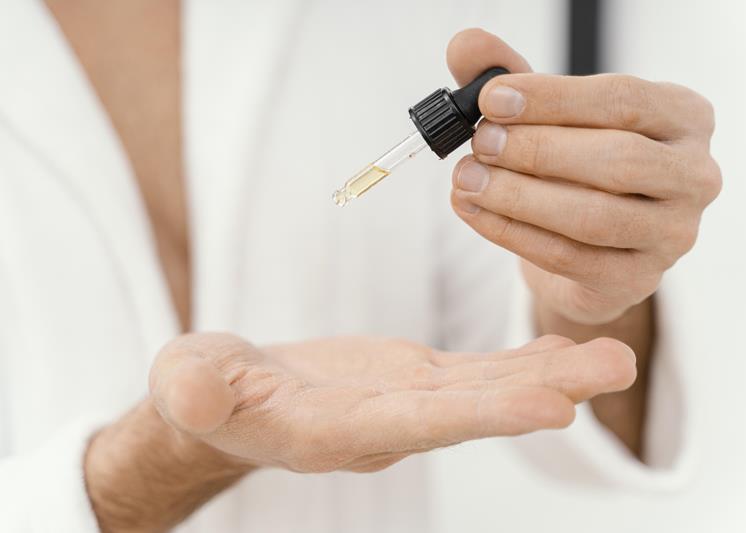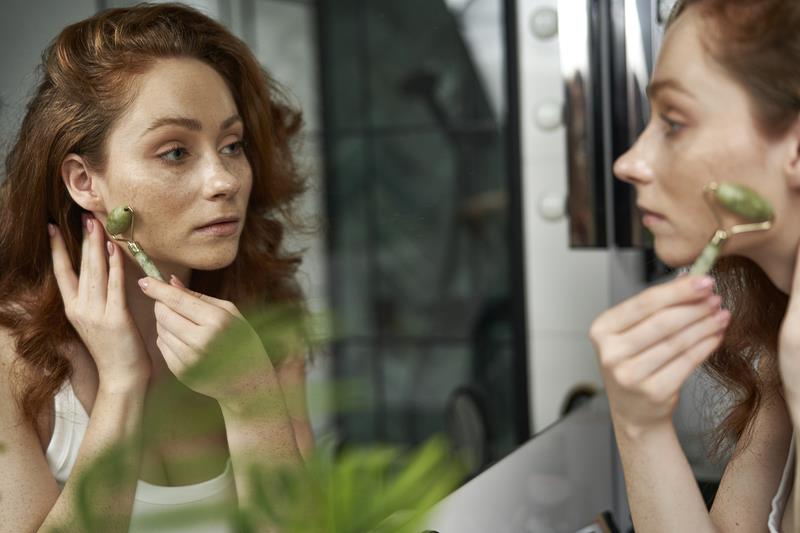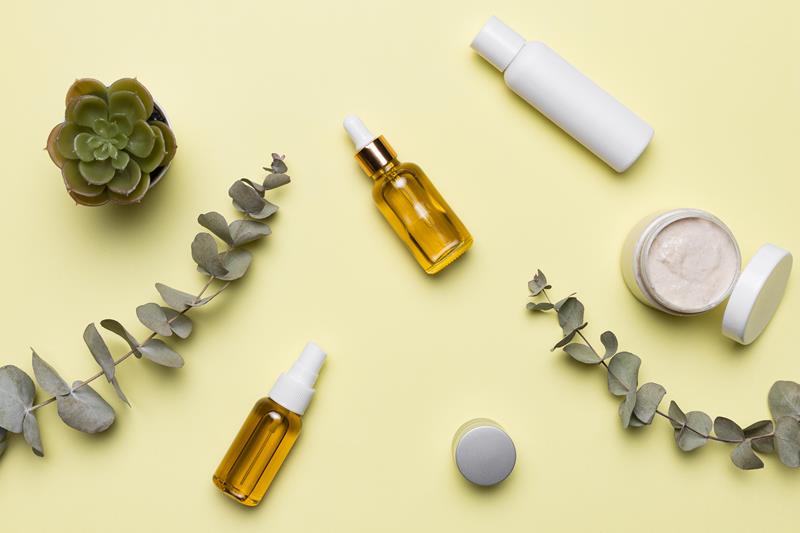The combination of oily skin and natural oils is considered incompatible, as many consider lipid-based formulas to be useless. Therefore, people with sebum-rich skin try to avoid oil-based cosmetics. However, essential oils have a positive effect – they restore skin balance, normalize sebum overproduction, and smooth out wrinkles. They also moisturize the dermis and support the skin barrier function, helping to soothe oily skin.
What causes oily skin?
Effective cosmetic care starts with knowing your skin type. The four main types are normal, dry, oily, each with its unique traits. Let’s talk about the most problematic one – oily skin. It can be recognized by common features – its shiny, thick, and firm appearance at the T-zone area (chin, nose, and forehead).
Sebum is an oily substance produced by sebaceous glands to keep your skin glossy, healthy, and moisturized. However, factors like stress, lifestyle, environment, diet, and hormones can lead to excess sebum production, resulting in a clogged, shiny appearance and increased sensitivity to acne and blemishes.
With the proper care, people with oily skin can effectively regulate sebum production and reduce skin problems, such as clogged pores, and a greasy appearance.

The best essential oils for oily skin
While oils might not seem ideal for oily skin, the right ones can offer significant benefits. Selecting the appropriate skincare products is crucial for maintaining skin health and preventing issues like acne and excessive shine.
Opt for lightweight options that won’t block pores but will help balance moisture and oil levels:
- Geranium has a flowery flavor with stabilization result.
- Tea Tree is known for its super antiviral, anti-fungal, and antiseptic properties.
- Clary sage works as an antiseptic, and astringent, and regulates seborrhea.
- Lavender has antibacterial, antiseptic, balancing effects.
- Ylang Ylang helps as an antioxidant, reducing sebum production, and being suitable for skin with enlarged pores.
- Sandalwood has a soothing effect on the skin, and eliminates skin irritation and inflammation.
- Green Oregano has antimicrobial and anti-inflammatory properties.
- Rosemary reduces sebum production, and has anti-inflammatory properties.
- Lemon has antimicrobial, antiseptic, astringent effects.
A skilled cosmetologist can assist you in selecting the ideal product to achieve more noticeable results.
How to Safely Use Essential Oils
Using essential oils can be beneficial for your skin, hair and overall well-being but it is important to do it correctly and safely. To begin with, you should familiarize yourself with all the warnings regarding the use of individual essential oils. This is due to the fact that some of them are contraindicated for use in case of certain health problems, during pregnancy, and age restrictions.
Proper care for oily skin requires the right product selection. Some essential oils are tested and labeled “non-comedogenic,” meaning they are specifically formulated not to clog pores or worsen oiliness.
To get the most out of essential oils, it’s crucial to learn the correct application methods. A daily skincare routine should consist of cleansing, toning (with hydrosols ideal for oily skin), moisturizing (using creams), and protecting (with SPF products).
Also, this product is applied in addition to cream or serum. Since essential oil nourishes the skin well but does not protect it well from ultraviolet radiation, you can apply a nourishing cream in the morning and replace the night cream with this option. It is also possible to combine cream and oil at the same time but some cream ingredients can be oleophobic, so this option is not very effective. The most important rule for using oil is to apply it to clean, well-moisturized skin.
The basis of the oil concentrate is the so-called carrier oils. That is carrier oils of kernels, nuts, and seeds. The essential oils may be used in a 3% dilution in a suitable carrier oil. For the face, a 1% dilution rate is used. It means 6 drops of essential oil mixed with 1 oz of carrier oil. It is applied small amount of the blend to the face, after applying the toner.
Essential oils for oily skin cannot be used as medical treatment, but perfectly moisturize, nourish, restore, and maintain the skin’s barrier function, helping to soothe oily skin. They are perfect as additional skin care products to daily facial care cosmetics.
They should be stored in glass bottles, preferably dark glass, protected from sunlight. Many oils require refrigeration. Such information should be indicated on the packaging. An important aspect is also the expiration date, which is included in the composition of cosmetics. Do not forget to avoid moisture and do not leave the products without a lid.




